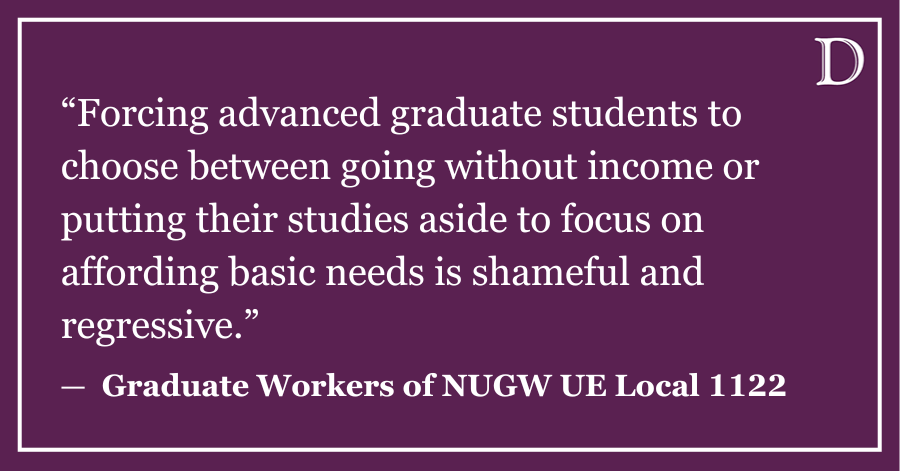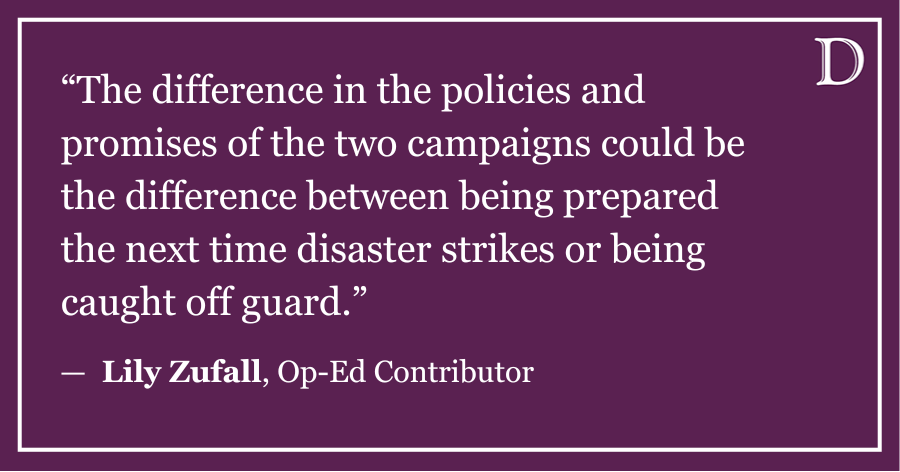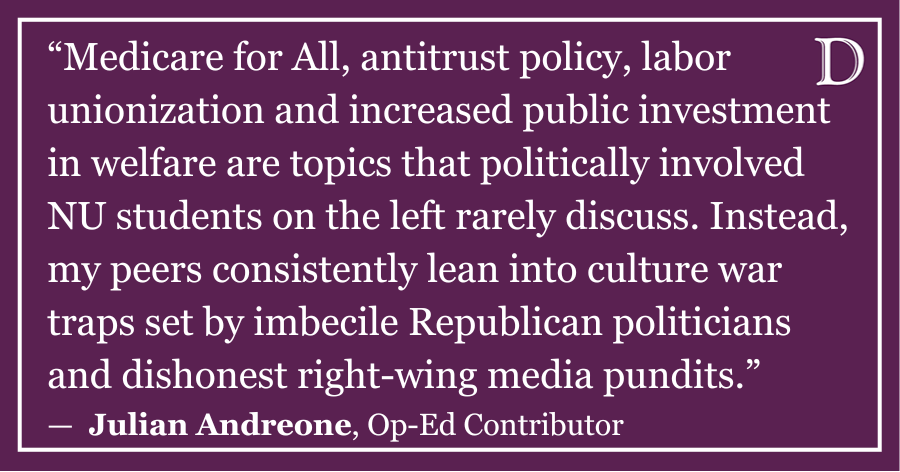Meeting true collectivists is a rare occurrence in the United States. When I came to Northwestern, I figured that I would likely meet quite a few communists and Marxists. Instead, I met one. And after he went to Germany for a quarter, even he turned pseudo-capitalist. Germany, with its known fiscal conservatism, had apparently convinced him of the power of competition.
There are few greater and more obvious schisms between English colleges and American ones than this: At University College London, Marxists dominate the political discussion on campus. In the classroom and in the public sphere, they are the most vocal and aggressive organization around, bar none. It’s hard to think of a time when I’ve crossed UCL’s campus without running into dozens of flyers imploring me to “Stand with Workers!” or to join an anti-austerity protest.
The new students’ fair was emblematic of this peculiarly radical tilt to campus politics. Several different Marxist groups advertised their groups with booklets and posters (which were ironically expensive) outside UCL’s main gates. To be fair, most of the people manning these booths didn’t seem to be UCL students; several revealed they were immigrants from other European countries, and most were recent converts to the movement.
That isn’t to say the Marxist movement is an exogenous force pressed upon UCL. In fact, a pair of my professors have openly admitted that they are Marxists. Coming from Northwestern, where I regularly hear students bickering over whether or not a professor is left- or right- wing based on ambiguous comments, this frankness is disconcerting, yet oddly refreshing. Furthermore, I have heard several students in my classes profess to have a “Marxist worldview,” one that defines the relations between countries in terms of the class struggles Marx first wrote about. For many of these students, to have such a perpsective leads to a need for a world government to fix the inequalities between different countries, a prospect that would no doubt be greatly opposed in the United States, which often views even the United Nations with suspicion.
Despite the critical mass of Marxist influence at UCL, it’s not clear that their message is directly affecting many of the freshmen they are trying to target. Several students I talked with discussed their confusion about what Marxism actually entailed. Another, Sam Coulton, discussed what he saw as theoretical impracticalities inherent in the Marxist worldview.
“It seems very impractical to think that you can use money and redistribution to make everyone equal,” he said. “There are significant complications to that end, and people will inevitably dislike it and want a different system because a different system would work best for them individually.”
Dan Pellegrino, a junior from Duke studying urban planning at UCL this quarter, had no desire to even discuss questions about Marxism. “That’s that (political philosophy) I don’t like,” he said, paraphrasing a popular Chief Keef song. He further emphasized the role that capitalism has played in fostering the very idea of America itself. In that light, the history and underlying message of the Marxist movement is un-American and heretical to Pellegrino, a self-styled patriot. Though his views were bluntly stated, they do well to summarize a general American consensus towards radical collectivist thought: no thanks.
Within a campus dominated by Lenin’s face, it can be hard to remember that Britain once fought collectivist tendencies across the globe with great fervor. One could be forgiven to not remember this, with the swath of “Our Universities Are Not Supermarkets!” posters tacked on every available space. It seems that many of Britain’s youth are being targeted by the ideology their parents and grandparents once fought so hard against. Whether the age of austerity in the Eurozone will bring about a rehash of the decades-old political sentiments remains to be seen, but either way it seems to ensure that the fall of Soviet Russia was not the last word in the debate between Karl Marx and Adam Smith.
Alex Entz is a Weinberg junior and a Global Paradigm Fellow based in England. The Global Paradigm Project is intended to link students across the world in a substantive discussion of politics and policy. Visit politicsandpolicy.org/category/dispatches to read more posts from our Global Paradigm Fellows.









